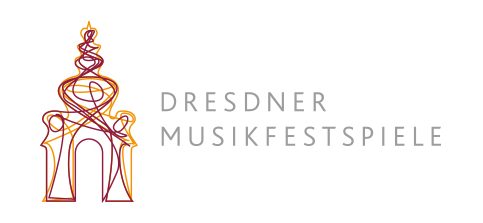
 Germany Dresden Music Festival) 2019 [2] – Lavry, Ben-Haim, Korngold, Enescu: Ido Azrad (clarinet), Neue Jüdische Kammerphilharmonie Dresden / Michael Hurshell, Neue Synagoge, Dresden 2.6.2019. (MC)
Germany Dresden Music Festival) 2019 [2] – Lavry, Ben-Haim, Korngold, Enescu: Ido Azrad (clarinet), Neue Jüdische Kammerphilharmonie Dresden / Michael Hurshell, Neue Synagoge, Dresden 2.6.2019. (MC)
Lavry – Al Naharot Bavel (By the Rivers of Babylon) for chamber orchestra, Op.33
Ben-Haim – ‘Pastorale Variée’ for clarinet, harp and strings, Op. 31b
Korngold – Sextet, Op.10 – arranged for string orchestra by Michael Hurshell (first performance)
Enescu – Romanian Rhapsody No.1 in A major, Op.11 – arranged for clarinet and strings by Sergei Abir
The Neue Synagoge was a welcome oasis from the late afternoon sun blazing down over Dresden. This was my first visit to the Neue Synagoge and I wondered what the acoustics would be like in the building but I need not have worried as everything was perfect. The contemporary looking building was constructed in 2001 from concrete blocks with an internal cube shape theme and the chamber orchestra was positioned on a stage surrounded by thick and high wooden panels that served to deflect the sound into the seating area.
Founded in 2007 the intention of the Neue Jüdische Kammerphilharmonie Dresden is to play works by Jewish composers or those of Jewish descent, especially those who experienced persecution or were forced into exile or murdered in the camps. Consequently, the orchestra will be reviving many forgotten works from its Jewish heritage. For this concert the chamber orchestra comprised of twenty-four string players including harp.
The four works (two original and two arrangements) programmed by the orchestra’s artistic director Michael Hurshell certainly fitted the prescribed criterion. To avoid anti-Semitism, Latvian born Marc Lavry emigrated to Palestine in 1935. Born in Munich Paul Ben-Haim emigrated to Palestine in 1933, following the rise of fascism. Eric Korngold born in Brno then in the Austro/Hungarian Empire (now Czech Republic) also emigrated to the USA as fascism grew in strength in Europe and forced him to leave. Finally, composer Georges Enescu was represented owing to his Jewish heritage and his experience of discrimination.
Opening the concert was Lavry’s Al Naharot Bavel (By the Rivers of Babylon) for chamber orchestra, a work I was hearing for the first time. This twelve-minute elegy of a predominately aching, yearning quality was the first work Lavry wrote after arriving in Israel and is imbued with a dark, resonant character. I especially enjoyed the several fleeting passages for the leader Katharina Overbeck, containing a unmistakable feel of Jewish music.
According to the programme notes this was the first occasion that Ben-Haim’s Pastorale Variée for clarinet, harp and strings had been performed in Saxony. Written at the end of the Second World War this is a stunning, high quality score both attractive and easily accessible and I couldn’t understand why I had not encountered it before. Clarinetist Ido Azrad excelled in this extremely demanding writing, required to play virtually from start to finish during its eighteen-minute length. Without hesitation, I assert that Pastorale Variée deserves to be heard regularly in concert programmes.
Next, we heard the Sextet composed by the teenage Korngold in an arrangement for string orchestra without harp, prepared by Michael Hurshell which was described as its première. The sweet-toothed melodies are a blend of late-Romanticism with the mood of the Art nouveau or Jugendstil movement that was prominent in Vienna where Korngold and his family lived. Although I prefer Korngold’s original sextet version, this string orchestra arrangement works exceedingly well with the strong concentration from the strings paying dividends and the leader Katharina Overbeck shone, with some lovely solo passages.
For the final work of the concert, clarinetist Ido Azrad returned to play the solo part in Enescu’s First Romanian Rhapsody in Sergei Abir’s arrangement for clarinet and strings. This was nine minutes of outstanding entertainment with conductor Michael Hurshell clearly at home with Enescu’s often fiery folk rhythms and at one point he looked as if he couldn’t resist dancing along. Ido Azrad had the audience in the palm of his hand with committed playing, completely entering into the rousing spirit of the music with a buoyant klezmer feel.
Under Michael Hurshell the playing of the Neue Jüdische Kammerphilharmonie Dresden was one of the finest I have heard in concert, being especially well prepared, strongly unified and producing a quite gorgeous sound. The Neue Synagoge must be one of the smaller buildings that the Festival uses for concerts but it’s certainly one of the best for sound.
Michael Cookson
